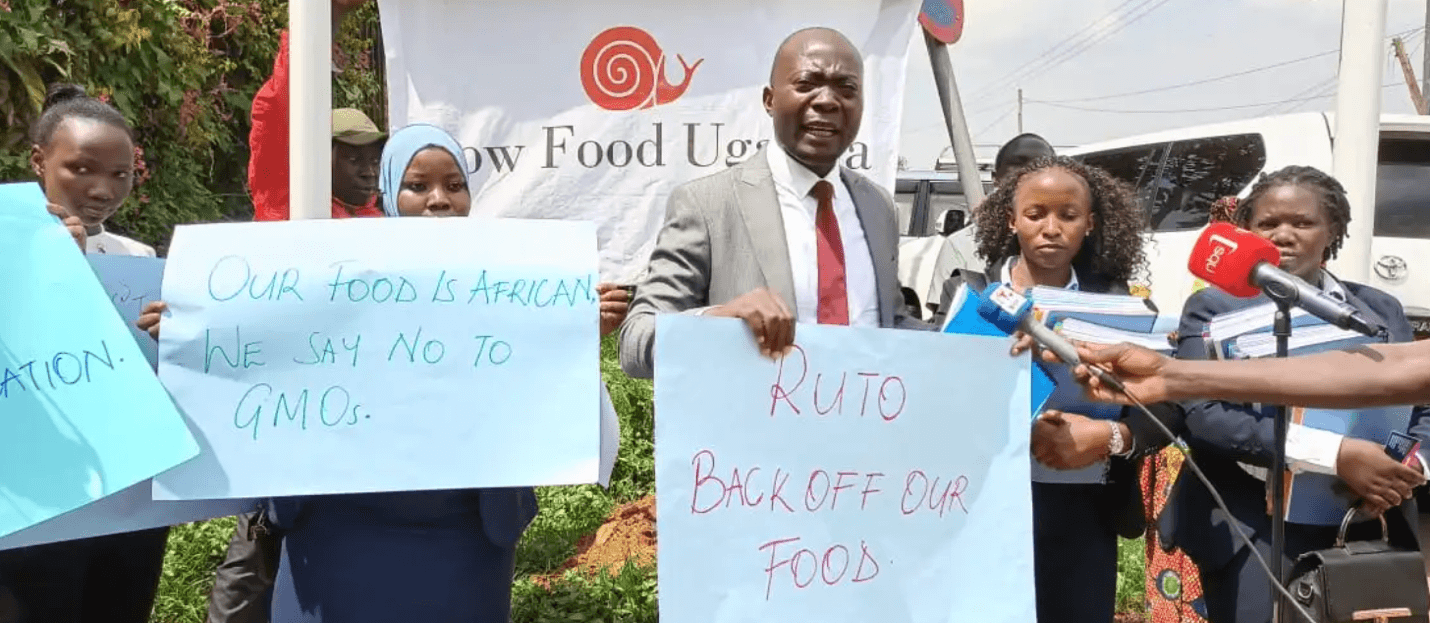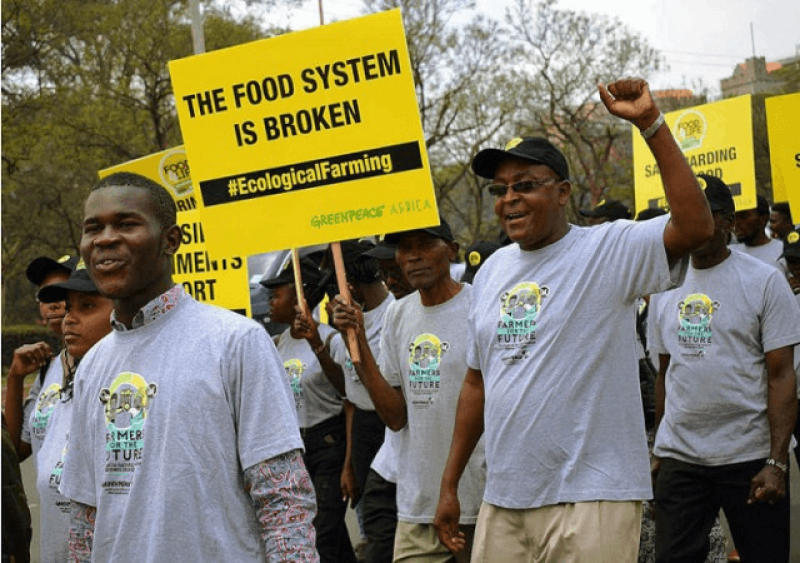Agro-technologies, including CRISPR gene-editing to tweak crops to tolerate the challenges of climate change, including the control of plant bacterial diseases, are in suspended development in Uganda. Anti-GMO activists are actually escalating their campaigns as Uganda and other East African countries are under attack after Kenya’s cabinet approved open cultivation and importation of GMOs last October.
As a consequence, teams of highly-trained scientists are contemplating leaving this underdeveloped country — listed among the world’s poorest. It comes at a time when Uganda badly needs specialists to overcome poverty and manage her dense-population growth now at 3%, with an economic growth rate of only 3.7 percent in 2022.
What’s blocking the innovation surge? The opposition that has led to the current block on research has more to do with superstition than science. The opposition is an alliance of religious groups, politicians, superstitious influences, and the most influential of all—technology rejectionism among local groups and the European-based environmental groups that have funded and guided them for years. As a result, the bulk of close to US$ 10m funding from the Gates Fouondation, USAID, the World Bank and other groups is now wasting-away.
Uganda biotech research successes
After years of wrangling, an updated biosafety law was passed by Uganda’s parlament in 2017, which would have opened the door to advanced research. But the president never signed the bill. As a result, a range of new plant varieties with critical, new traits including drought-tolerance, resistance against destructive viral, bacterial and fungal tropical diseases, pests and to bio-fortification of staple foods, ground to a halt.
Research at the National Crops Resources Research Institute where the largest laboratories, containment and confined field trial sites are found ground to a halt. Over the previous 20 years, NaCRRI and its teams of Ugandan molecular biologists, bacteriologists, virologists, breeders, agronomists and agricultural economists, among others, developed insect-resistant Bt-maize with resistance to stalk-borers, fall army worm pests; maize-tolerant to drought; and rice less-dependent to nitrogen, water and tolerant to saline soils with enhanced ability to grow in near-nutrient-depleted soils.
Much of the country’s has focused on protecting crops from local and regional diseases. Scientists bred cassava resistant to the twin-viral mosaic and brown streak diseases; potatoes resistant to the fungal late blight disease; and Bt-cotton resistant to destructive bollworms. Other projects focused on bananas resistant to the highly-destructive xanthomonas [bacterial] wilt disease. Bio-fortified bananas to address iron and Vitaman A deficiency in young children was also in the pipeline.
Key agricultural areas in Uganda have unique pest, disease and abiotic challenges, that traditional measures such as pesticide sprays, irrigation and conventionally-bred crops have, over time, failed. Moreover, many of these innovations would have sharply reduced chemical sprays.
Activist disinformation
Activists from a closely-knitted cohort of civil society organizations with foreign (mostly European) funding, have spread scare stories about biotechnology, and lobbying influential offices like parliament and the presidency. They have also solicited support from peasant farmer groups and religious leaders who have openly rejected genetically-engineered products for two decades despite their years of proven safety and efficacy.
ActionAid-Uganda — the most outspoken group in Uganda campaigning against GM-crops — with more than $2.5 million in funding — has financed anti-biotech campaigns since 2015, especially targeting radio advertisements.
According to the local media outlet, the organization has repeatedly propagated the myth that GM products cause cancer, which even anti-GM diehards no longer even claim anymore. The UK investigative program Panorama obtained a radio ad produced by ActionAid in Uganda attempting to whip up opposition to a parliamentary bill that would have regulated the cultivation of GM technology in the country.
Did you know that genetically modified organisms are organisms made in the laboratory by crossing genes from different species?” the ad says, before adding: “Such products pose health risks such as cancer, infertility, etc. This has been brought to you by ActionAid Uganda
Stephen Tindale, former head of Greenpeace at the height of its lobbying campaigns to discredit GM technology and now a supporter of innovation, described the commercial as shocking. “To be scaremongering about health risks, particularly cancer, with no scientific justification … is totally immoral,” he said.
UK’s The Independent also revealed that ActionAid’s campaign manager in Uganda was warning farmers that cultivating GM crops could cause cancer and harm human health.
The case of Slow Food International
Another Europe-based NGO, the Slow Food International which has a branch in Uganda, has campaigned relentlessly against the use of technology in agriculture. SFI It has even campaigned against bananas bred to be disease free, claiming they are not ‘guaranteed to be safe’.
It’s global site is replete with erroneous assertions. For example, it claims that GMOs “risk transforming our food into a patented commodity controlled by a few multinationals …, when in fact thousands of crop innovations have been patented from discovery (not introduction, which cuts the patent usage on average from 20 years to about 7 years), and most organic farmers use patented seeds.

SFI adds: “Little is known about [GMOs] from a health perspective [not true as there have been more than 4,000 studies and safety endorsements from every major regulatory or oversight agency in the word, with no exceptions] and from a technical standpoint they are obsolete ….” [a claim no scientist would agree with, especially as CRISPR gene editing has opened the door wide to sustainable farming innovations]
The regional Uganda branch has been relentlessly campaigning to ensure that Uganda does not follow in Kenya’s liberalization footsteps. SFI helped organize a demonstration in January to deliver a petition to a court in Kampala to compel the Government not to allow in GMOs from Kenya.

The “introduction of GM varieties that resist diseases and enhance nutrition compromises local control of the food system and limits the exports of Ugandan fruit and vegetables to markets where GMOs are banned,” claimed one of the leaders of the protest, Mukiib,i who is from Uganda and been SFI’s International Vice-President since 2014, writes:
“The GMO Bill puts the future of Uganda under threat: Slow Food offers a different way forward… No need for GMOs ….. Uganda’s rich biodiversity already provides solutions to the country’s food problems” — miraculously apparently, as farming output in the country, which already widely uses agroecological techniques, lags countries that use advanced technologies.
The Advocates Coalition for Development and Environment (ACODE), a policy research and advocacy think tank, has emerged in recent years as an aggressive critic of modern agricultural techniques, is actually heavly funded by numerous US-based organizations including USAID.
“We’re promoting the rights for farmers. It is not about money,” said Barbara Ntambwireki, senior fellow at ACODE and an outspoken anti-GMO activist is quoted as saying in an investigative piece by Uganda’s Nile Post.
Anti-GM groups linked to anti-vaccine protestors
In November 2022, the Catholic Church’s CARITAS-Uganda — an international anti-GMO entity — backed a group of anti-GMO MPs who recently demanded a redrafting of the 2018 GMO-Bill to block the approval of GMOs or gene edited innovations – including the use of the technology to develop human vaccines, like the mRNA shot that has helped contain COVID. The church partnered with CORDAID NL (Netherlands), a Dutch-based anti-GMO group that is active in Uganda.
Another entity, Africa Technology Assessment Platform (AfriTAP), wants the MPs to re-draft the bill,addressing what it calls the ‘genetic manipulation’ and the ‘use of poisonous and dangerous viruses and bacteria’. AfriTAP is describes itself as a group that “brings together African civil society groups, social movements, independent scientists, lawyers and media professionals working together to assess the implications of new ‘emerging technologies’ on the continent. It claims Africa has become a testing ground for new medical and agricultural technologies.
The focus of anti-GMO groups on Uganda has escalated in the wake of Kenya’s tentative approval of GM crops. The Alliance for Food Sovereignty in Africa (AFSA) is a broad alliance of civil society actors that was based in Ethiopia, but has shifted its base to Uganda. Among its list of principles, AFSA cites: “Rejecting the genetic engineering and privatization of living organisms” with its core purpose “to influence policies”. AFSA purports to represent African farmers’ organizations, NGO networks, ‘specialist African NGOs,’ consumer movements, smallholder farmers, pastoralists, hunter/gatherers, indigenous peoples, faith-based institutions, and environmentalists.
How are scientists responding?
Renowned professor of entomology and a strong biotechnology advocate, Morris Ogenga-Latigo, is sharply critical of those opposed to GM-technology. A scientist-cum-politician, a large-scale farmer and a one-time leader of the opposition in the Uganda Parliament, argues that managing climate change impacts especially to agriculture, must utilize modern biotech and genetic engineering.
When we’re struck by adverse weather conditions with droughts, food shortages, starvation and catastrophic damage by virulent pests and diseases, the outspoken anti-GM technology activists go silent and leave the heavy-lifting to scientists and governments. When things look seemingly good they come out with guns blazing against scientists.
“When a tractor was invented, it met stiff opposition and all kinds of superstitious fears in the USA,” he has written, predicting the technophobia will evanually fade. “Those who appreciated it, they adopted and utilized it. And today, the rest is history! While one is a biological technology and the other is mechanical/hardware, the bottom line is they’re both not so welcomed, yet they’re well-intended.
But the path forward is not clear. Dr. Godfrey Asea, Director at Uganda’s largest research center and Principal Investigator for GM-maize (insect-resistant Bt and drought tolerance, admits the valuable 20-year Ugandan investment is in limbo, with a hazy future. The ability to address the roiling effects of climate change is threatened.
“Priority was given to breeding via genetic engineering because it provides significant advantages over conventional breeding that doesn’t give robust resilience to challenges of climate change …. but the future is bleak unless
The surge in GM crop and food opposition is particularly ironic as products with GMO-ingredients are found in supermarkets across Uganda and consumed by urbanites. Common food Items like South African-made Kellogs and Bokomo cornflakes contain GMO — with transgenic-maize as their main ingredient.
Peter Wamboga-Mugirya is the Director of Communication and Partnerships at the Science Foundation for Livelihoods and Development (Scifode) and Executive Member of the Uganda Science Journalists’ Association (USJA). Find Peter on Twitter @wambotwit































